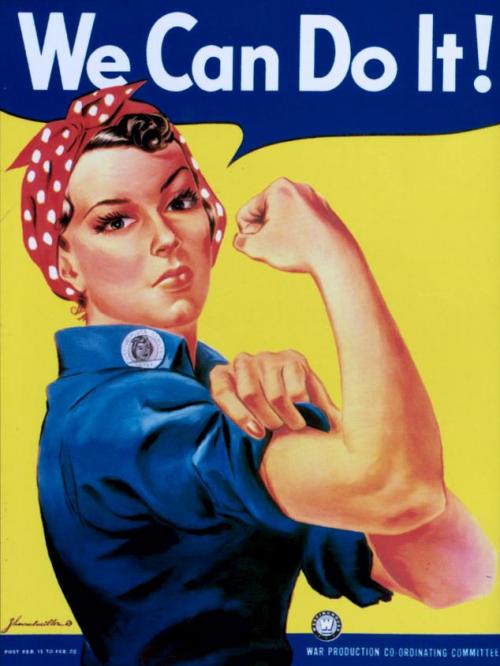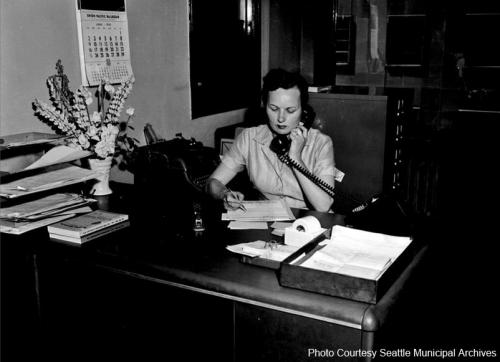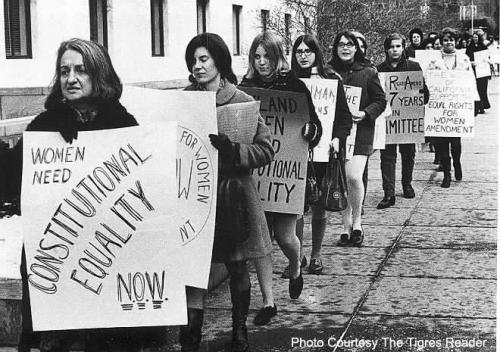by Julia Mora and Sophia Mora
Rosie the Riveter, with her red handkerchief and sculpted biceps, has become an easily recognizable national cultural icon. But what about the message behind the poster? From where did this image of a strong, confident, working woman originate? Julia Mora and Sophia Mora answer these questions and much more in their new website: “Riveting and Welding: The Revolution of Women in the Workplace.”


Julia and Sophia argue convincingly that Word War II triggered a female labor revolution by allowing women to leave the home and apply for jobs previously reserved for men. Once the war ended, men returned home with the expectation that women should abandon their jobs and return home.

However, World War II work enticed new feminist thoughts, and they began to think about life outside the home. This thought process triggered a series of labor, legal, and social reforms for women – what the Moras call a real “revolution” – resulting in a more female-friendly workforce today.

“Riveting and Welding” highlights the origins of the revolution and the legislative and social reforms it sparked, as well as popular reactions to women’s newly visible presence in the traditionally male-dominated workplace and the revolution’s legacy in today’s feminist movement. (Don’t miss out on an excellent critique of the portrayal of women in the TV show “I Love Lucy”).

Countless photographs, videos, audio clips, primary source documents, and timelines guide readers through more than half a century’s worth of information about women’s long road from the home to the workplace.
Photo credits:
All photos courtesy of “Riveting and Welding: The Revolution of Women in the Workplace.”



